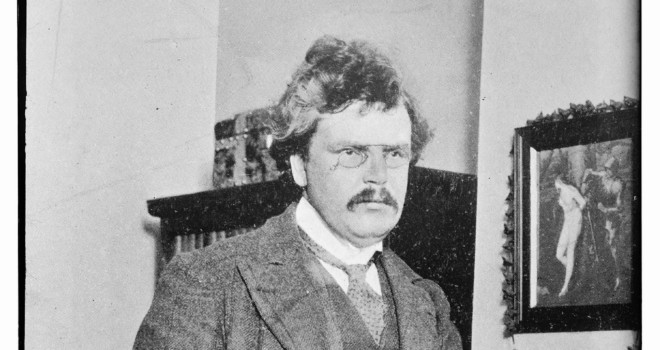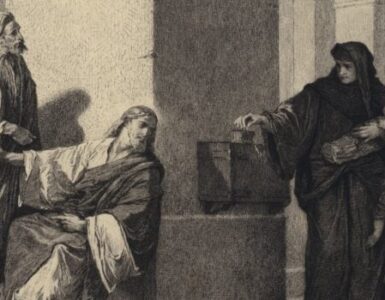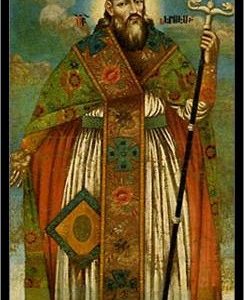G. K. Chesterton is often dubbed, and deservedly so, “The Prince of Paradox”. The nature of the paradox, not surprisingly, is both subtle and elusive. The etymology of the Greek word, paradoxon, means “contrary to teaching”. And yet, the paradox can lead a person into a deeper teaching. In a recent article on Chesterton, the author mistakenly identifies paradox as the art of combining “self-contradictory propositions”. If that was what G. K. was doing, he was simply talking nonsense and certainly not eligible for a royal appellation. Contradictories negate each other. They do not enlighten. A paradox is not a contradiction.
For Carl Sandburg, the paradox is a doorway to truth. “Truth consists of paradoxes and a paradox is two facts that stand on opposite hilltops and across the intervening valley call each other liars.” To grasp the significance of a paradox requires both patience and insight. Sandburg, who won a Pulitzer Prize for his biography of Abraham Lincoln, esteemed America’s 16th president as the incarnation of a paradox: “Not often in the story of mankind does a man arrive on earth who is both steel and velvet, who is hard as a rock and soft as a drifting fog, who holds in his heart and mind the paradox of a terrible storm, and peace unspeakable and perfect.” Lincoln was anything but simple-minded.
A paradox, to the unwary, is an apparent contradiction. Yet, it conveys a deeper truth, one that is usually overlooked. “Only the paradox,” wrote Carl Jung, “comes anywhere near comprehending the fullness of life”. The paradox is as elusive as is the meaning of life. Yet, when properly understood, both provide enlightenment. Although entirely credible, the paradox can seem entirely incredible. Philosopher Bertrand Russell alluded to this problem in stating that, “The point of philosophy is to start with something so simple as not to seem worth stating, and to end with something so paradoxical that no one will believe it”.
If Chesterton is the “Prince of Paradox,” then Christ is its King. As He has told us, “we are in, but not of this world”; “he who loves his life, shall lose it”; “he who humbles himself shall be exalted”; “my yoke is easy;” and “blessed is the meek for he shall inherit the earth”. Christ’s words invite us into a deeper meaning of life through the portal that is the paradox. Ayn Rand’s philosophy–“Existence is Existence; A is A”–is devoid of paradox and hence devoid of depth.
Hugh Kenner, is his book, Paradox in Chesterton, states that his subject’s “especial gift was his metaphysical intuition of being; his especial triumph was his exploitation of paradox to embody that intuition”. The fact that he was a gifted philosopher explains his affinity for the thought of St. Thomas Aquinas and his superlative portrait of the Angelic Doctor in St. Thomas Aquinas: “The Dumb Ox”. Aquinas’ supreme paradox is that we know God as unknown. Concerning Chesterton’s work on Aquinas, the distinguished Thomistic philosopher, Etienne Gilson had this to say: “I consider it as being without possible comparison the best book ever written on St. Thomas. Nothing short of genius can account for such an achievement. Everybody will no doubt admit that it is a ‘clever’ book, but the few readers who have spent twenty or thirty years in studying St. Thomas Aquinas, and who, perhaps, have themselves published two or three volumes on the subject, cannot fail to perceive that the so-called ‘wit’ of Chesterton has put their scholarship to shame”. Chesterton was indeed witty, but his wit never got in the way of his philosophical depth.
For Chesterton, paradox sits by the springs of truth. The paradox of hope is that the more hopeless the situation is, the more hopeful I must be. The paradox of charity is that the weaker a thing is, the more it should be respected, that the more indefensible a thing is, the more it should appeal to me for a certain kind of defense. “Strong legs run so that weak legs can walk” was the motto of a football game played to raise money for children suffering from infantile paralysis.
It is essential, in appreciating Chesterton’s use of paradox, to realize that it is not merely an adornment of his writing. Its purpose is to reveal the wonder of a truth that has been hidden from view or one that seems improbable. No single line of logic is capable of delivering the truth of things. The justification of the paradox is that it is true to the being or reality it describes. In this sense, Chestertonian paradoxes reveal not only something real but also a genuinely philosophical mind.
In his Orthodoxy, Chesterton defines courage as a “strong desire to live taking the form of a readiness to die”. This is surely not a contradiction. It is grafted on the Christian principle, “He that will lose is life, the same shall save it”. The coward merely clings to life, nor should he simply wait for death. “He must seek his life,” writes Chesterton, “in a furious indifference to it; he must desire life like water and yet drink death like wine”.
Christ came with a sword and, among other things, divided the criminal from the crime. “The criminal we must forgive unto seventy times seven. The crime we must not forgive at all”. It was Chesterton’s respect for the realism of Christ’s words and His paradoxical thought that led him into the Catholic Church. The Church was never against reason; she always insisted on something that goes beyond reason without negating it. The paradox serves both reason and intuition.
✠
image: Bain News Service, publisher, Public domain, via Wikimedia Commons












